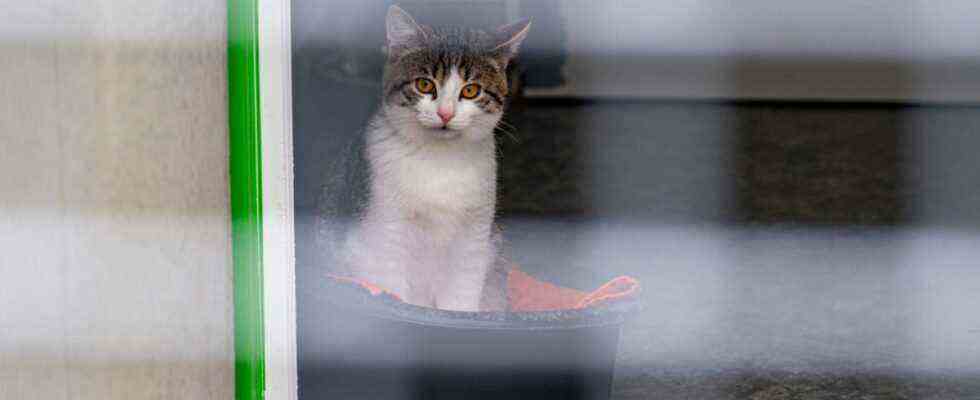Some animal shelters in Bavaria get so many cats and dogs that they have to give the animals to other shelters. They hardly know what to do with the animals. Ilona Wojahn, President of the Bavarian State Association in the German Animal Welfare Association, says there is a shortage of housing for abandoned four-legged friends, especially in regions close to the border. She co-founded the animal shelter in Reisbach (Dingolfing-Landau district). More than 100 cats currently live in her facility alone. And that doesn’t just have to do with the corona virus.
Especially at the beginning of the corona pandemic, many people had gotten a pet. Be it to be less alone during the lockdown or because they had more time to acclimate the animal. Weeks and months later, many of the animals were brought back, says Wojahn. However, the situation in the animal shelters in Bavaria is very different. Some would have numerous so-called returns, others almost none. In Reisbach, only one cat and two hamsters were handed over, which had probably been bought carelessly during the lockdown, reports the animal shelter manager.
She cites two very different main problems: illegal puppy smuggling from south-eastern Europe and un-neutered cats in the countryside. The animals from illegal transports are mostly too young and usually not vaccinated. That means quarantine and that they stayed in animal shelters for a comparatively long time. In some countries of origin there is also rabies, which is practically non-existent in Germany, reports Wojahn.
Ilona Wojahn, President of the Bavarian State Association in the German Animal Welfare Association, is standing in the Quellenhof Passbrunn animal shelter.
(Photo: Armin Weigel/dpa)
The employees in her animal shelter have now been vaccinated against rabies because of the animal transports. The cat glut has mainly to do with the fact that many pet owners, especially in rural areas, do not have their cats neutered. The animals multiplied too much. “It’s a bottomless pit.” Neutering should be mandatory for outdoor cats.
Wojahn demands a Bavaria-wide cat protection regulation from politicians. In the Free State, however, the municipalities are responsible for obtaining a castration of free-ranging cats by means of a regulation. Wojahn sees problems with implementation here. As positive examples, she highlights the districts of Dachau and Pfaffenhofen an der Ilm, which have issued such a regulation. Another, actually very positive development also means more effort for the animal shelters: The authorities are now more frequently investigating suspected cases of animal welfare violations, according to Wojahn.
However, animals from confiscations burden animal shelters all the more because they are often sick, unvaccinated and behaving abnormally. Many of the animals in shelters have been “messed up” by humans. And Wojahn has noticed another trend: When pets get old and sick – and the veterinary costs are higher – the owners are more willing to give up their four-legged friends. The argument is then: The family has developed an allergy to animal hair.
That is often not believable. Wojahn makes an appeal to people who want to get a pet: namely to go to an animal shelter and not to order a dog or cat from abroad via the Internet. There are enough animals here that need a good home.

